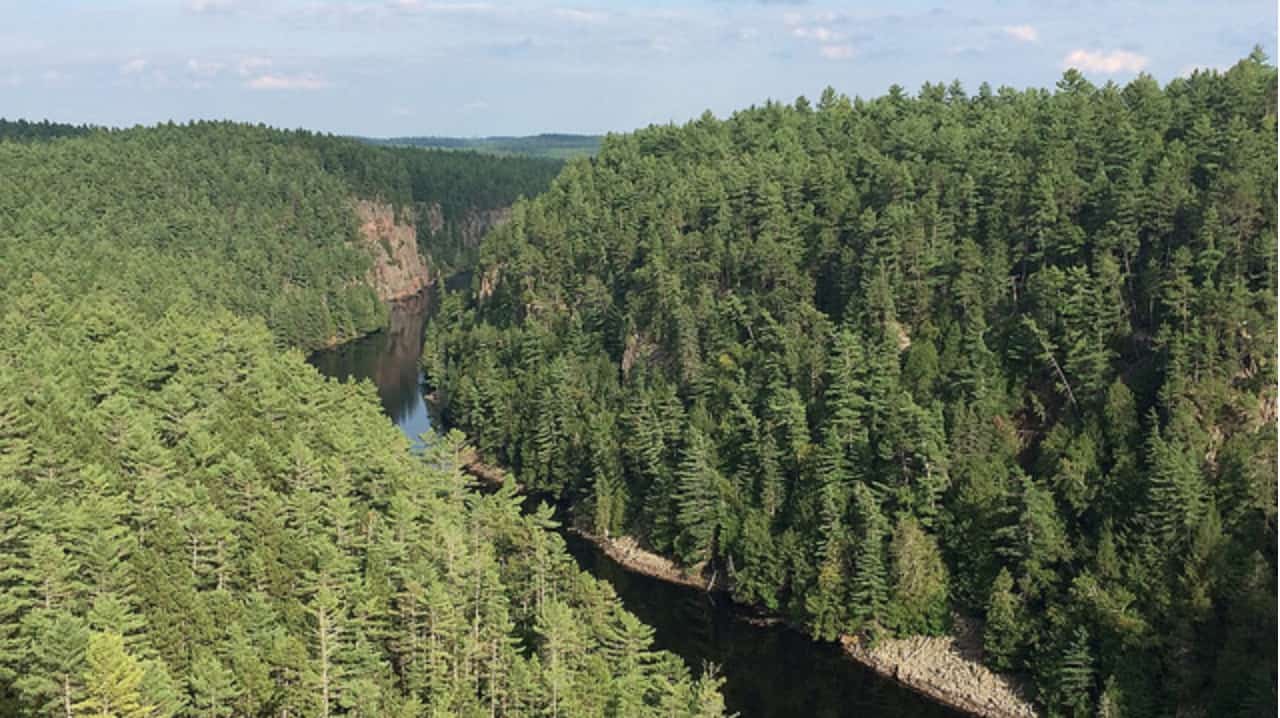5 National and Provincial Parks You Have to Visit Just a Few Hours from Brampton
Published April 21, 2017 at 6:59 pm

While areas of Brampton are scenic, everyone needs a change of scenery from time to time.
There are a ton of national and provincial parks just a few hours outside of Brampton. You can hike through winding trails, swim in clear water, see moose, birds, and reptiles, and get to know Canada a little better, all a short road trip away.
Here are 5 parks you have to see that are driving distance from Brampton.
5. Bruce Peninsula National Park
3 hours and 15 minutes from Brampton
Located on the Niagara Escarpment, Bruce Peninsula National Park in Tobermory is a stunning UNESCO world biosphere reserve and a great opportunity for hiking along the Marr Lake Trail and the Bruce Trail, or swimming in Georgian Bay. Relax at Singing Sands Beach or hike to The Grotto, the park’s limestone coasts, abundance of wildlife, mixed-wood forests, cliffside cedars, clear-water lakes and vibrant orchids will make for some epic selfies. Bruce Peninsula is rugged, vibrant, and perfect for an adventurous getaway from Brampton, ideal for a few days of camping.
For more info, click here.

4. Algonquin Park
3 hours from Brampton
If you’ve always wanted to solidify your Canadian-ness and befriend a moose (just me?), Algonquin Park is the best place for you to live your dreams. It’s officially moose-watching season, and the moose usually hang out along Highway 60, which stretches along Algonquin. Algonquin has eight campgrounds, more than 15 trails, and a lot of backcountry areas to explore. It’s full of maple hills and rocky ridges, and boasts thousands of lakes, so be prepared to do a lot of walking and canoeing in your park exploration. If you’re looking for a lot of walking, lace up your hiking boots because Algonquin is perfect for you.
For more info, click here.

3. Thousand Islands National Park
3 hours from Brampton
It is an undisputed fact that the 1000 Islands, located in both Southern Ontario and Northern New York State on the St. Lawrence River, is gorgeous and perfect for sightseeing. Thousand Islands National Park is an archipelago with more than 21 islands within the 1000 Islands and stretches from Brockville to Kingston. If you’re more active and like exploring, 1000 Islands National Park is a great option. There are 61 campgrounds, an abundance of cottage accommodations, and marinas to boot. This geographic area is well worth the drive if you want to enjoy a legendary Shore Dinner, sample local wine and beer, and try island hopping by kayak or canoe.
For more info, click here.

2. Arrowhead Provincial Park
2 hours from Brampton
Arrowhead might be well known for winter activities, but it’s perfect for a summer weekend getaway in Muskoka. The park has 15 kilometres of hiking trails, including a trail that leads to a waterfall. You can rent canoes, kayaks, or mountain bikes and tickle your adventurous side, or go swimming at one of three quiet, clean, sandy beaches that back into birch groves to relax. Arrowhead is quaint and private, and ideal for some peace and quiet.
For more info, click here.

1. Georgian Bay Islands National Park
1 hour and 40 minutes from Brampton
Adventure and inspiration await at Georgian Bay Islands National Park, the world’s largest freshwater archipelago, protecting 63 islands along 50 kilometres of Georgian Bay. The park’s longest island, Beausoleil, spreads eight kilometres, and is ideal for biking. Biodiversity is huge at the Georgian Bay Islands, with Precambrian granite from the Canadian Shield, forests of sugar maple, pine, and beech, birds like raptors and songbirds, and even reptiles and amphibians. With waterfront cabins overlooking a Great Lakes shoreline, geocaching available, and more than 12 marked trails, Georgian Bay Islands National Park is perfect for artistic endeavours like painting and photography, relaxing, and exploration.
For more info, click here.

To get your pass for free entry to national parks for Canada’s 150, click here. A note that the pass only applies to national parks, not provincial ones.
INsauga's Editorial Standards and Policies


